Oil, large-scale housing development and ecological situation – Askhat Shakharov on Aktobe region’s development

Kazinform correspondent sat down with akim (governor) of Aktobe region Askhat Shakharov to chat about the region’s potential, construction of highways, oil production and other things as part of the new Q&A series with akims of the regions of Kazakhstan.
We often say that Aktobe region is one of the regions with high potential for development. Each sector in the region has a development roadmap and indicators in place. Can you tell us a bit about further development of the region situated in the west of Kazakhstan?
President of Kazakhstan Kassym-Jomart Tokayev paid a visit [to the region] in December and outlined the sectors with high untapped potential. There is a lot of work to do. First and foremost, the attraction of investments. In terms of alternative energy sources, investors have put forward a host of projects with the total capacity of 500 MW. This work is currently of paramount importance.
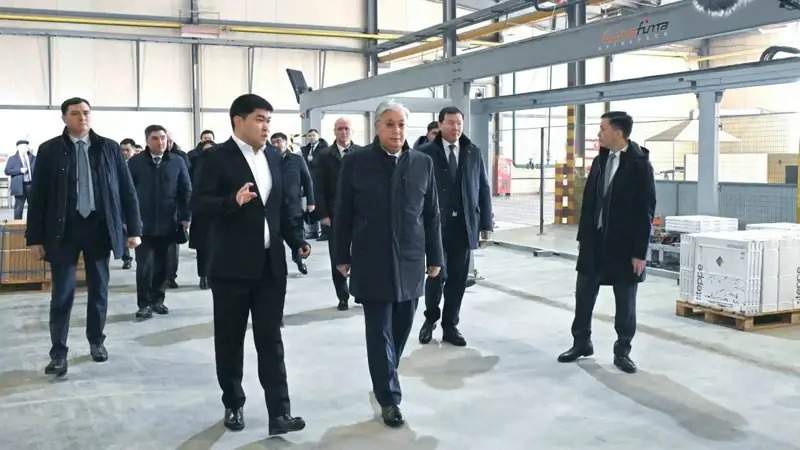
Secondly, in order to develop economy it is crucial to solve the problem of highway construction. The Head of State gave specific instructions in that respect. Currently, the Aktobe-Karabulak-Ulgaisyn highway is divided into seven sections. Construction of the first kilometers of one of the sections is about to start. Procurement documents regarding the second section are to be prepared in the nearest future.
This highway is quite busy in terms of traffic – some 16,000 vehicles use it in summer months and some 8-9,000 vehicles in winter months. The traffic load has increased fivefold in the past years. Last year the Ministry of Transport earmarked 1 billion tenge. If it will allot one more billion tenge this year, we will be able to repair 40 km of the highway.
Additionally, construction of a 259-km long Kandyagash-Shalkar highway has kicked off. 75 km of the highway is expected to be constructed in 2024 with the support of the Ministry of Transport.
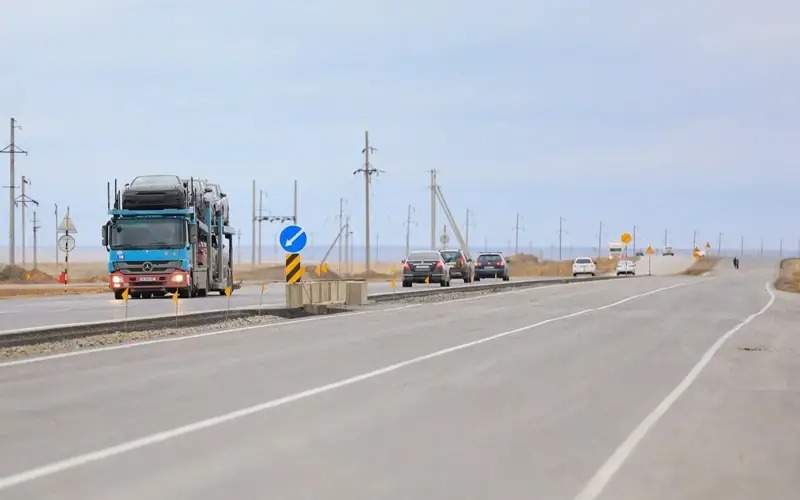
During his visit to the region late last year, Kassym-Jomart Tokayev familiarized with work done in several sectors, including industry, SMEs, etc. Did Aktobe region achieve positive results in those sectors last year?
We have a goal in mind to attract a trillion tenge of investments into the region annually. First of all, we place priority on substitution of import with domestic products. This includes construction materials, food, and animal feedstaff. Aktobe region is renowned among investors as there are 27 large businesses and over 400 SMEs functioning in the region.
Some 900 workplaces were created as part of 18 investment projects last year. For instance, ERG launched a sludge processing plant at the Donskoy Ore Mining and Processing Plant. This investment project will let tackle the ecological problem that existed for years.
Additionally, a plant manufacturing mobile drilling rigs which has recently begun its work now provides the domestic market with oil production equipment.
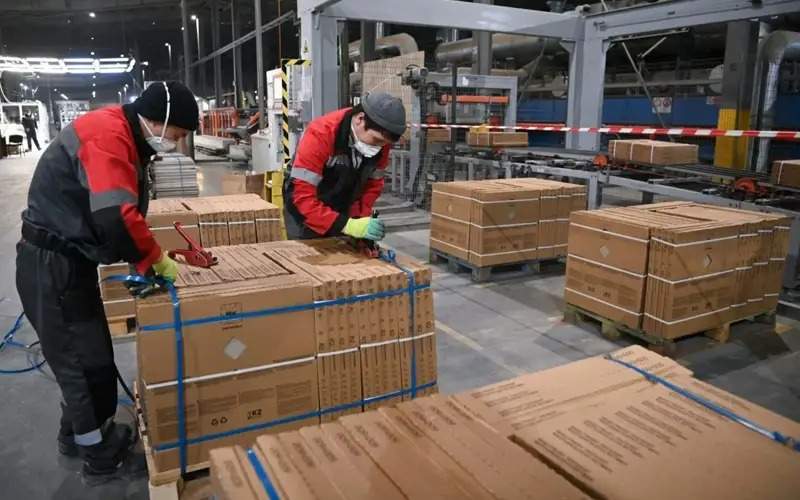
ERG, CNPC-Aktobemunaygas and Aktobe mys allotted over 200 billion tenge to modernize their enterprises.
Aktobe region is among the leaders in terms of support of SMEs. For instance, 1,637 people were supported as part of the national project on the development of entrepreneurship and 1,655 as part of the Auyl amanaty project. Some 600 families with many children received financial grants.
53 projects to the tune of 1 billion tenge aimed at the development of small and medium business in Khromtau district have been approved. As a result, the number of SMEs has exceeded 96,000 and currently they employ over 181,000 people.
There are several best crop production districts in Aktobe region, but the majority are the most productive agricultural districts. You visited the districts and met local farmers. What are the problems they are facing now? How will their problems be solved?
The region boasts good development of the agrarian sector. Last year allocated 14.5 billion tenge for agricultural development. The President as part of his working trip to the region clarified the Auyl amanaty project's aims and goals and noted the Government will render all-around support to farmers, and small and medium-sized businesses.
As part of the project, the republican budget allotted 19 billion tenge for 2023-2024. 1,734 projects worth 8 billion tenge have been approved as of now. As a result, over 2,019 chickens were bought, and 97 small greeneries were built. 142 small milk processing and 75 meat processing enterprises, 123 bakeries and confectionary enterprises were launched, and 1,210 new workplaces were generated.
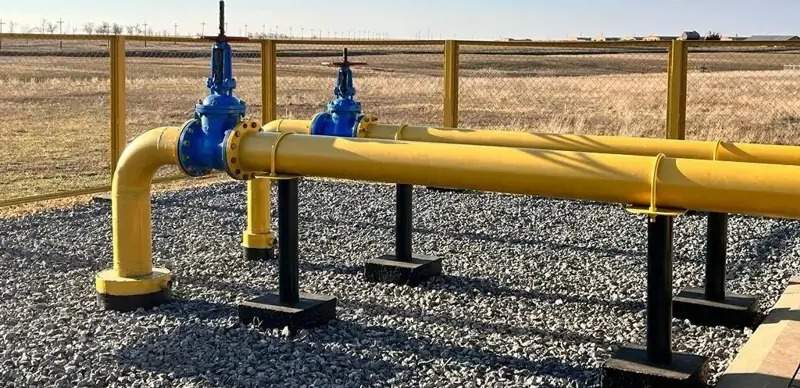
After the appointment, I visited 12 districts and met local farmers. They ask for reimbursement of feed expenses. An additional 2.9 billion tenge was allotted from the local budget. For 11 months of 2023, the products made in the region reached 424 billion tenge with state support.
Besides, the region will also produce construction materials.
As for housing and utilities - we all want access to electricity, water, and gas for a comfortable life. Could you tell us how the residents of the region are provided with all this?
The Kazakh President set a task to provide all the villages with drinking water by 2025. 283 out of 320 rural settlements have water supply networks. Centralized water supply networks were built last year in several villages with a population of 2,285 people. Integrated block modules will be installed in 13 villages, 15 villages will build water supply networks. The networks will be repaired and restored in three more villages. Thus, 926 people, or 99.8% of the population living in 300 villages (93.7%) will be provided with drinking water. To solve water supply issues, we use Sarybulak and Moisseyev water deposits with water reserves lasting around 50 years.
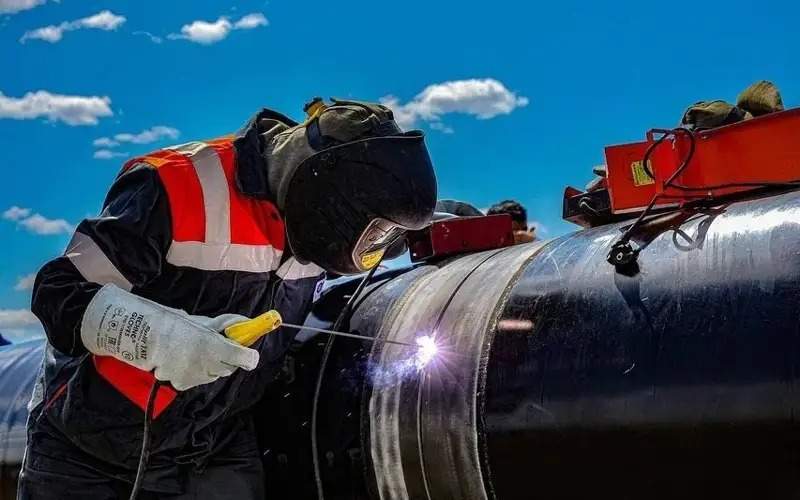
Is there enough water to meet all demands in the region?
The city is facing water scarcity. As I have already said it will be solved as soon as Sarybulak and Moisseyev water deposits are developed. There is also Kokzhide. Oil and gas production will be fully suspended there by 2030. Five companies are working there. A half out of 200 wells will be suspended this year.
What is the level of gasification in the region?
16 villages with a population of 6,800 people were gasified last year. 168 out of 320 rural settlements or 886,000 consumers were provided with natural gas. This year seven villages with a population of 2,800 people will be supplied with gas. As a result, natural gas availability in the region will hit 95.8%.
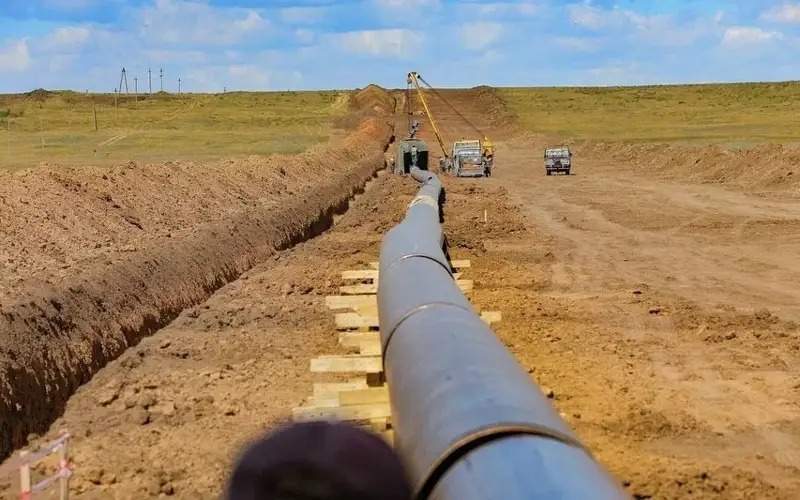
Besides, construction of the third string of the Bukhara-Ural gas pipeline will be completed and commissioned this year for uninterrupted gas supplies to the greater part of Aktobe city, the nearest inhabited localities, and industrial facilities. The project cost is 43.3 billion tenge.
As the former mayor of the region’s center Aktobe city, you’re well aware of the issues facing the city in detail. Will the city get rid of the unpleasant odor?
First, in about two months, the general layout of the city of Aktobe will be adopted. It saw the most recent major changes in 2018. In 2017-2018, the city’s territory was expanded. The general layout is to consider construction of residential buildings, social and infrastructure facilities. As for the unpleasant odor, the roadmap was developed with the help of representatives of the civil society, independent experts and representatives of government bodies. The document covers the pressing environmental issues the measures on which are to be taken in next three years. Worn-out sewage treatment facilities are to be replaced with new ones. The project worth KZT53.5 billion will be funded by the European Bank for Reconstruction and Development (EBRD). Construction and installation works are to start this year.
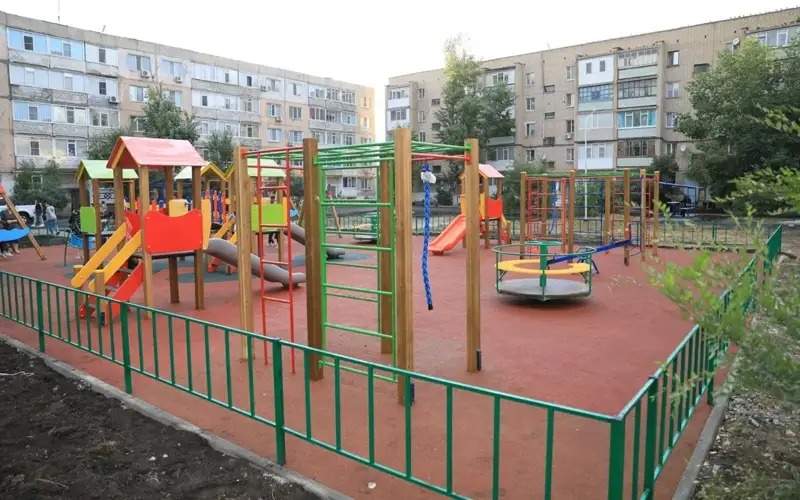
The city plants trees yearly as well as runs many campaigns to improve its landscaping. More efforts are needed. Will the city have green zone, recreation parks?
Formation of a green zone, more recreation parks are on the agenda. For the city’s comprehensive landscaping, development of a five-year plan is expected. It is to be developed on the basis of private and public partnership… The plan is to cost the city around KZT1.6 billion a year.
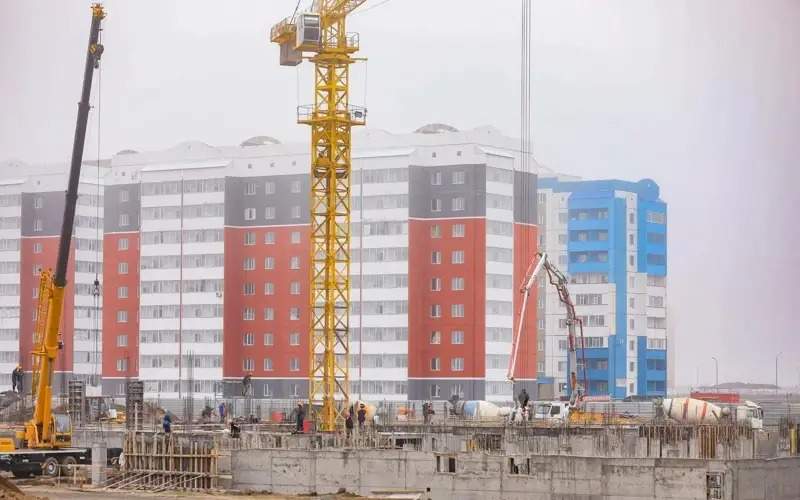
Going back to the mass construction topic, the Head of State gave the instruction to build a theater during his visit to Aktobe region. What is being done in this direction? Are there any other major constructions in the region?
To realize the President’s instruction, a working group was set up, comprised of the head of the region’s drama theater, well-known artists, seasoned architect and urban professionals in architecture… This year, construction works are to be launched. The building is to be commissioned next year. Its total cost is around KZT10-15 billion. Moreover, the issue of construction of a central stadium is being considered. Construction of the stadium for 30 thousand seats needed to meet the UEFA requirements needs KZT50-70 billion of investments. As of now, we have 5-6 investors willing to take part in the project.
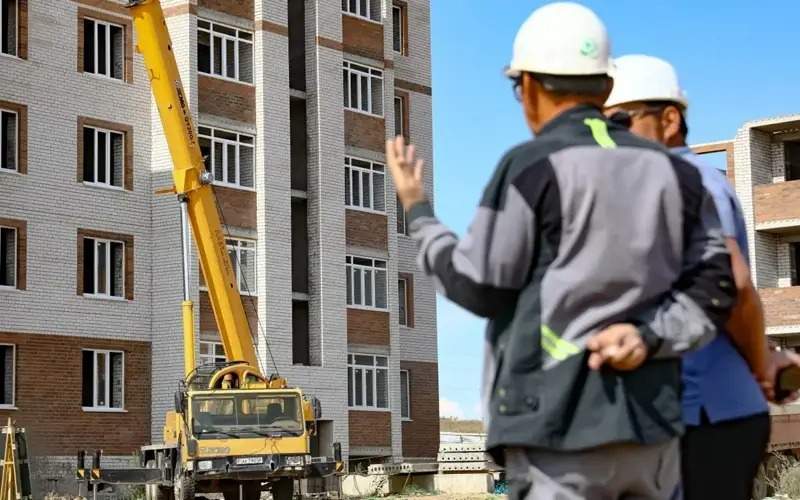
Dimash Qudaibergen is the pride of Kazakhstanis and a native of Aktobe. Each year, the singer’s fans come here to visit Dimash’s homeland. It’s obvious that it is one of the ways to promote tourism. Are there any tours?
The region has the Visit Aktobe center to promote tourism. The delegation from Aktobe region visited China, Beijing and Shanghai, as well as the Republic of Korea, Seoul, as part of the Road Show outdoor event late last year. The event’s main goal was the presentation of Dimash Tour. During the visit, the delegation members spoke about the tourist opportunities of the region, tours related to Dimash Qudeibergen’s creative work and biography.
As you said, foreign fans arrive in Aktobe to visit the school and musical college Dimash attended. Each year, over 100 tourists from Switzerland, Canada, Norway, Great Britain, China, and other countries come. For them, special tours aimed to familiarize them with the region are to be conducted.

Aktobe region promotes different tourist directions as it boasts 12 eco-tourism routes. There are tours of historic and cultural sites. Industrial tourism is also being promoted.
What sports should the region focus on?
First of all, we focus on development of Olympic sports. There are some sports suitable for our region, for our athletes. They are football, judo, swimming, Greco-Roman wrestling, freestyle wrestling, boxing, taekwondo, volleyball, and table tennis. Of course, huge attention is given to the national sports and to non-Olympic sports and mass sports, namely chess, sambo, futsal, karate, and taekwondo, Presidential multi-sport competition, and other sports.
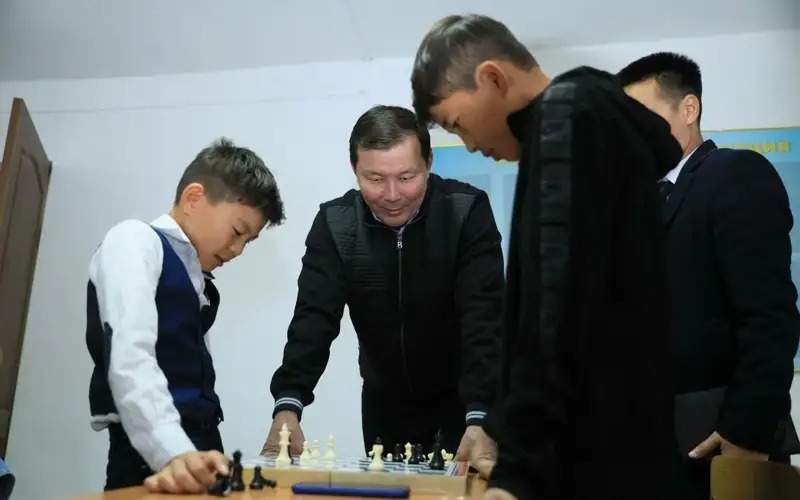
Do you workout?
I am planning to start. I understand the importance of exercising. I used to exercise for 7-8 hours a day. Then my regime changed.
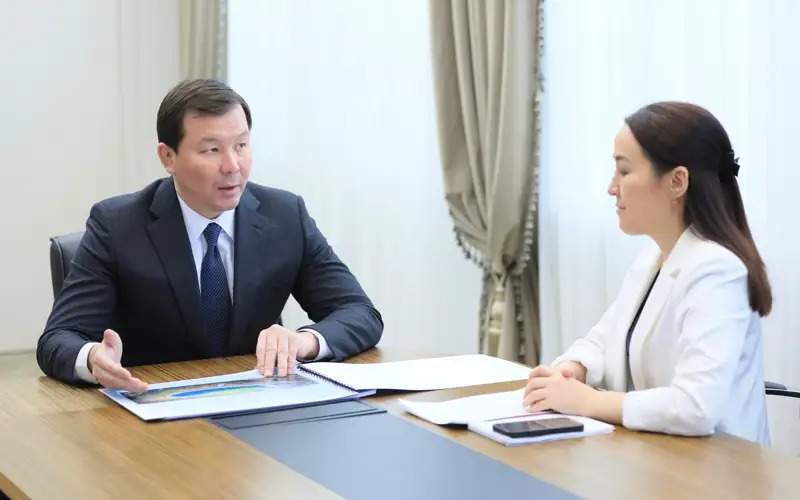
During your work trips to the districts, you see numerous uncompleted social facilities. Will these facilities be put into operation this year?
All problematic issues in the districts and villages have been included in this year’s plan. Several projects were proposed as well. Special attention is given to the quality of roads, with 20-30 kilometers of unbuilt road sections in many districts and villages. This year we will spend some 26 billion tenge on the repair of roads. There are no compelling or weighty issues. We are currently developing feasibility study on some projects.
We wish you success in tackling all the problems. Thank you for the interview!

